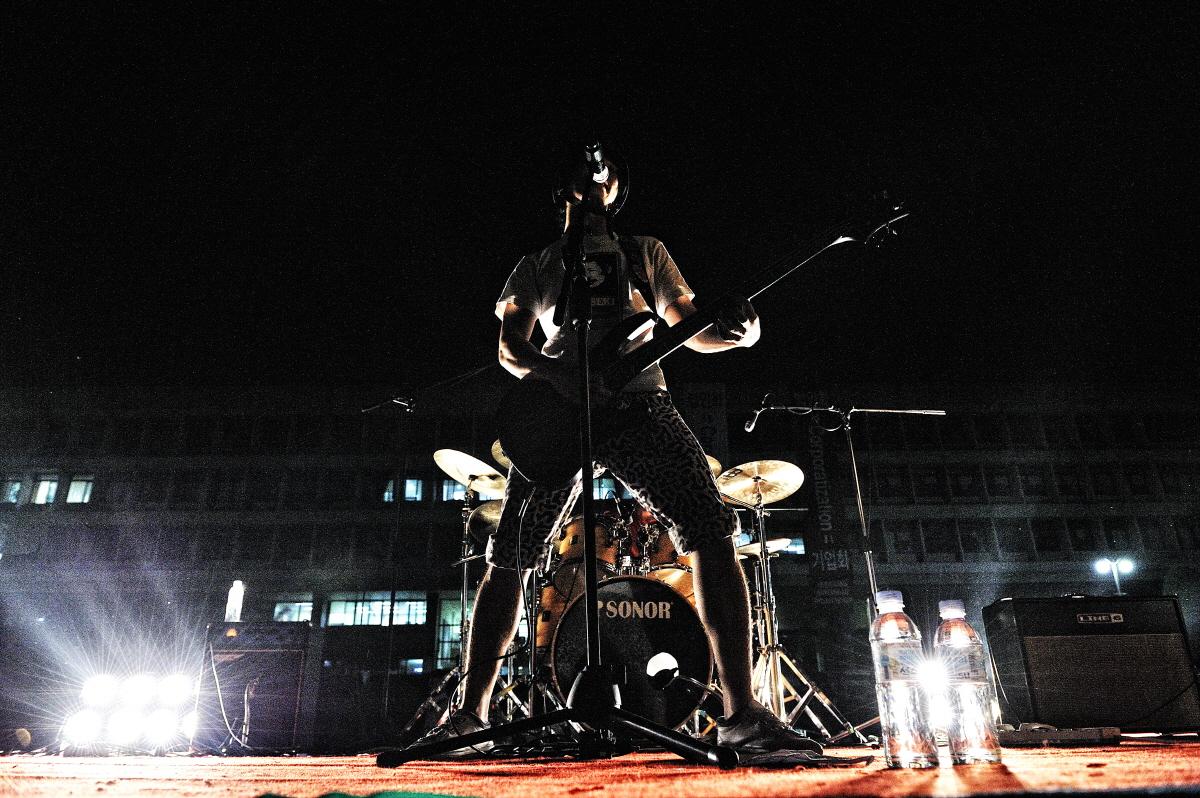
No Culture, no Money, no Time, but Music
South Korean punk band Bamseom Pirates makes fast, noisy, paradoxical, self-effacing music that plays with the most dangerous subject in South Korea: North Korea. A delicate topic, as both countries are technically still at war. The documentary Bamseom Pirates, Seoul Inferno by Jung Yoon-suk shows how the band uses music to resist the social and political absurdities of present-day South Korea.
«No culture, no money, no time. These are the three problems of the youth», says Jang Sung-gun, bassist of the South Korean duo Bamseom Pirates. In the band’s opinion, the youth of South Korea suffer from the grievous ramifications of globalized turbo capitalism paired with hysteric patriotism.
Trapped between self-optimization, hi-speed digital consumerism, neo-Confucian values, a highly competitive education system, and a job market with poor salaries and dwindling perspectives, young South Koreans face harsh life conditions and growing social inequalities. That leaves them helpless and hopeless – to a life in «Hell Joseon» (as a popular internet phrase from the early 2010s says, meaning that «South Korea is close to hell and a hopeless society»).

Escape into and Resist with Music
What are two poor boys to do, but play in an underground band? Jang Sung-gun and drummer Kwon Yongman, aka Bamseom Pirates, deal in a quirky and ear-splitting mix of grind, punk, black metal, and noise, as well as multimedia art performance, savage satire, and splendid self-mockery.
Their songs play with the «most dangerous subject in South Korea, which is North Korea» (Kwon Yong-man). This much is clear in their song titles: «All Hail Kim Jong-il», «The Juche philosophy is full of protein», «Dear Leader, please buy me some chocolate», which alone put them under suspicion of South Korean authorities not amused about what they perceive as bold, pro-communist, and at the same time anti-nationalist attitudes.
The Desire for National Security
Director Jung Yoon-suk skillfully blends the band’s non-conformist music with footage taken from South and North Korean propaganda videos, thus creating forceful criticism of the «invisible power» that takes center stage in the film: South Korea’s National Security Act. An early Cold War relic from 1948, the law has largely remained unchanged and still bans propagating, inciting, and praising on behalf of North Korea or anti-government organizations.
Despite the very recent diplomatic rapprochements between the two Koreas, both countries are technically still at war (the Korean War ended with an armistice in 1953). The desire for national security prevails and has grown extensively during the early to mid-2010s, when the authorities indicted more than one hundred people under the National Security Act as part of a broader rollback of democratic institutions.
Amongst them, the case of Bamseom Pirates’ friend and producer Park Jung-geun is particularly bizarre: he was sentenced to ten months in prison for re-tweeting a North Korean propaganda post – even though the judge acknowledged that some of his tweets were parody. Against the backdrop of blazing censorship, psychological warfare, and social insecurity in contemporary South Korea, Bamseom Pirates, Seoul Inferno makes a compelling case for the right to freedom of artistic expression and creativity.
Biography
Published on December 13, 2018
Last updated on April 10, 2024
Topics
From political music in the GDR, the trouble of punk musicians in China and the dangerous life of kurdish folk singers in Turkey.
From Muslim taqwacore to how the rave scene in Athens counters the financial crisis.
From post-digital pop mocking the music history to Romanian folk music turning into a meme culture.
Snap




